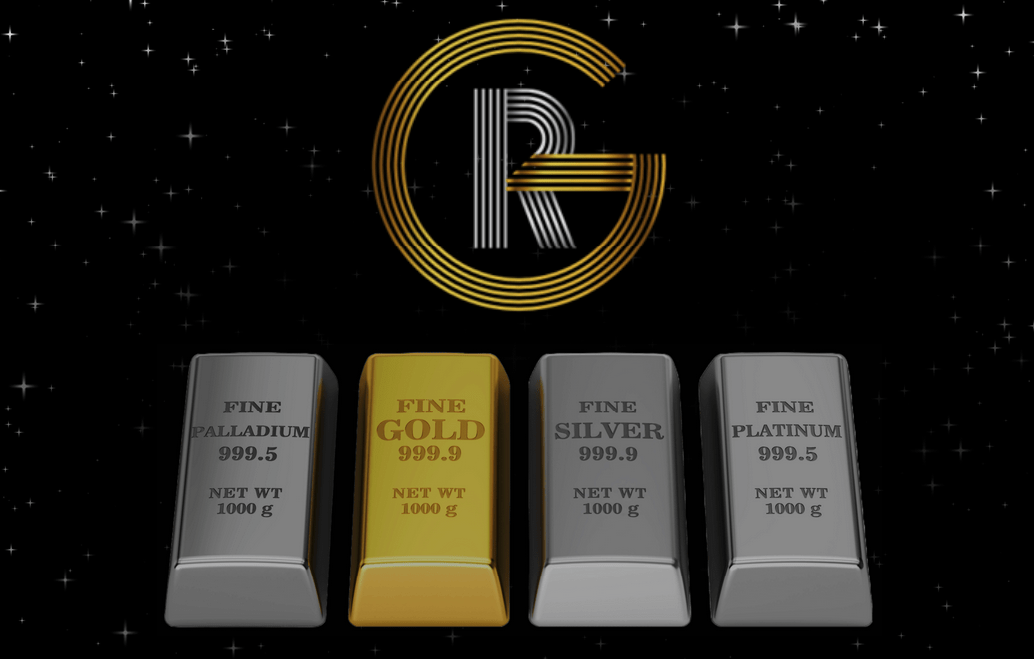Precious metals like gold, silver, and platinum have been valued for their rarity and beauty for centuries. But did you know that they can also be a wise investment choice? In this article, we’ll explore the ins and outs of investing in precious metals, including why you might consider doing so, how to get started, and what pitfalls to avoid.
Table of Contents
- What Are Precious Metals?
- Why Invest in Precious Metals?
- Types of Precious Metals to Invest In
- How to Invest in Precious Metals
- Physical vs. Paper Investments
- Pros and Cons of Investing in Precious Metals
- Tips for Successful Precious Metals Investing
- Potential Pitfalls to Avoid
- Taxes and Reporting Requirements
- Precious Metals Investing FAQs
- Conclusion
- FAQs
1. What Are Precious Metals?
Precious metals are a group of naturally occurring elements that are rare and highly valued due to their beauty and rarity. The most commonly traded precious metals are gold, silver, platinum, and palladium. They are used for a variety of purposes, including jewelry, industrial applications, and investment.
2. Why Invest in Precious Metals?
There are several reasons why you might consider investing in precious metals. For one, they have historically held their value over time, even during economic downturns. Additionally, they can provide a hedge against inflation and currency fluctuations. Finally, precious metals are a tangible asset that can be held and stored, unlike many other types of investments.
3. Types of Precious Metals to Invest In
As mentioned, gold, silver, platinum, and palladium are the most commonly traded precious metals. However, there are other metals that are also considered precious, including rhodium and iridium. When deciding which metal(s) to invest in, it’s important to consider their current and historical prices, as well as any potential supply and demand issues.
4. How to Invest in Precious Metals
There are several ways to invest in precious metals, including:
- Buying physical metals such as coins or bars
- Investing in exchange-traded funds (ETFs) or mutual funds that hold precious metals
- Investing in mining stocks
- Investing in futures or options contracts
5. Physical vs. Paper Investments
When investing in precious metals, you have the option of buying physical metals or investing in paper assets such as ETFs or futures contracts. Physical metals can be held and stored, but may be subject to theft or loss. Paper investments are more convenient but can be subject to market volatility and counter-party risk.

6. Pros and Cons of Investing in Precious Metals
There are both advantages and disadvantages to investing in precious metals. Some pros include the ability to hold and store tangible assets, the potential for long-term price appreciation, and a hedge against inflation and currency fluctuations. However, some cons include the potential for price volatility, liquidity issues, and the need for secure storage.
7. Tips for Successful Precious Metals Investing
If you’re considering investing in precious metals, there are several tips you can follow to increase your chances of success. These include:
- Conducting thorough research before investing
- Diversifying your investments across multiple metals and asset types
- Storing physical metals in a secure location
- Paying attention to market trends and economic indicators
- Working with a reputable dealer or investment advisor
8. Potential Pitfalls to Avoid
While investing in precious metals can be a sound strategy, there are also potential pitfalls to avoid. These include:
- Over-investing in a single metal or asset type
- Failing to conduct thorough research before investing
- Ignoring market trends and economic indicators
- Not storing physical metals in a secure location
- Falling victim to fraud or scams
9. Taxes and Reporting Requirements
When investing in precious metals, it’s important to understand the tax implications and reporting requirements. For example, gains from the sale of physical metals may be subject to capital gains tax, and certain transactions may need to be reported to the IRS.
10. Precious Metals Investing FAQs
- Is investing in precious metals a good idea?
- How do I get started investing in precious metals?
- What are the risks associated with investing in precious metals?
- How can I store my physical metals safely?
- What tax implications should I be aware of when investing in precious metals?
11. Conclusion
Repli.Gold is a traditional investment platform that now also leverages blockchain technology to facilitate the buying and selling of gold, silver, platinum and palladium. The platform offers investors an efficient and secure way to invest in precious metals without the need for physical ownership or storage. By using blockchain technology, Repli.Gold ensures that all transactions are transparent and secure, providing investors with peace of mind.
The use of blockchain technology in finance has been gaining traction in recent years, and Repli.Gold is at the forefront of this change. Blockchain technology provides a secure and transparent record of all investments, ensuring the safety and security of all digital gold, silver, platinum and palladium holdings. This is particularly important in the world of finance, where trust and transparency are critical.
Repli.Gold works by allowing investors to buy and sell digital gold, silver, platinum and palladium tokens that are backed by actual physical gold, silver, platinum and palladium held in secure vaults around the world. The tokens represent a specific amount of gold, silver, platinum or palladium, and investors can buy and sell these tokens just like they would any other asset. The use of blockchain technology ensures that all transactions are transparent and secure, making it easy for investors to track their investments.
One of the benefits of using Repli.Gold is that it allows investors to invest in gold and silver without the need for physical ownership or storage. This is particularly important for investors who may not have the means or desire to store physical gold, silver, platinum or palladium. By investing in digital gold, silver, platinum and palladium tokens, investors can benefit from the price movements of these precious metals without the hassle of physical ownership.
Another benefit of Repli.Gold is that it allows investors to invest in smaller increments. Traditionally, investing in gold, silver, platinum and palladium required large sums of money, making it difficult for smaller investors to participate. Repli.Gold allows investors to invest in smaller increments, making it accessible to a wider range of investors.
In conclusion, Repli.Gold is leading the charge in blockchain-powered finance. By leveraging blockchain technology, Repli.Gold is able to provide investors with a secure and transparent way to invest in gold and silver. The platform is accessible to a wider range of investors, and allows them to invest in smaller increments without the need for physical ownership or storage. With the rise of blockchain technology, Repli.Gold is well positioned to revolutionize the world of finance.
FAQs
- Is investing in precious metals a good idea?
Investing in precious metals can be a good idea for diversifying your portfolio and hedging against inflation and currency fluctuations. However, it’s important to consider the risks and potential pitfalls before investing.
- How do I get started investing in precious metals?
There are several ways to invest in precious metals, including buying physical metals, investing in ETFs or mutual funds, investing in mining stocks, and trading futures or options contracts. Before investing, it’s important to conduct thorough research and work with a reputable dealer or investment advisor.
- What are the risks associated with investing in precious metals?
The risks associated with investing in precious metals include price volatility, liquidity issues, and potential fraud or scams. It’s important to conduct thorough research and work with a reputable dealer or investment advisor to minimize these risks.
- How can I store my physical metals safely?
Physical metals can be stored in a variety of ways, including in a safe or secure storage facility. It’s important to take precautions to prevent theft or loss, such as insuring your metals and choosing a secure storage location.
- What tax implications should I be aware of when investing in precious metals?
Gains from the sale of physical metals may be subject to capital gains tax, and certain transactions may need to be reported to the IRS. It’s important to consult with a tax professional to understand the tax implications of your specific investment strategy.
